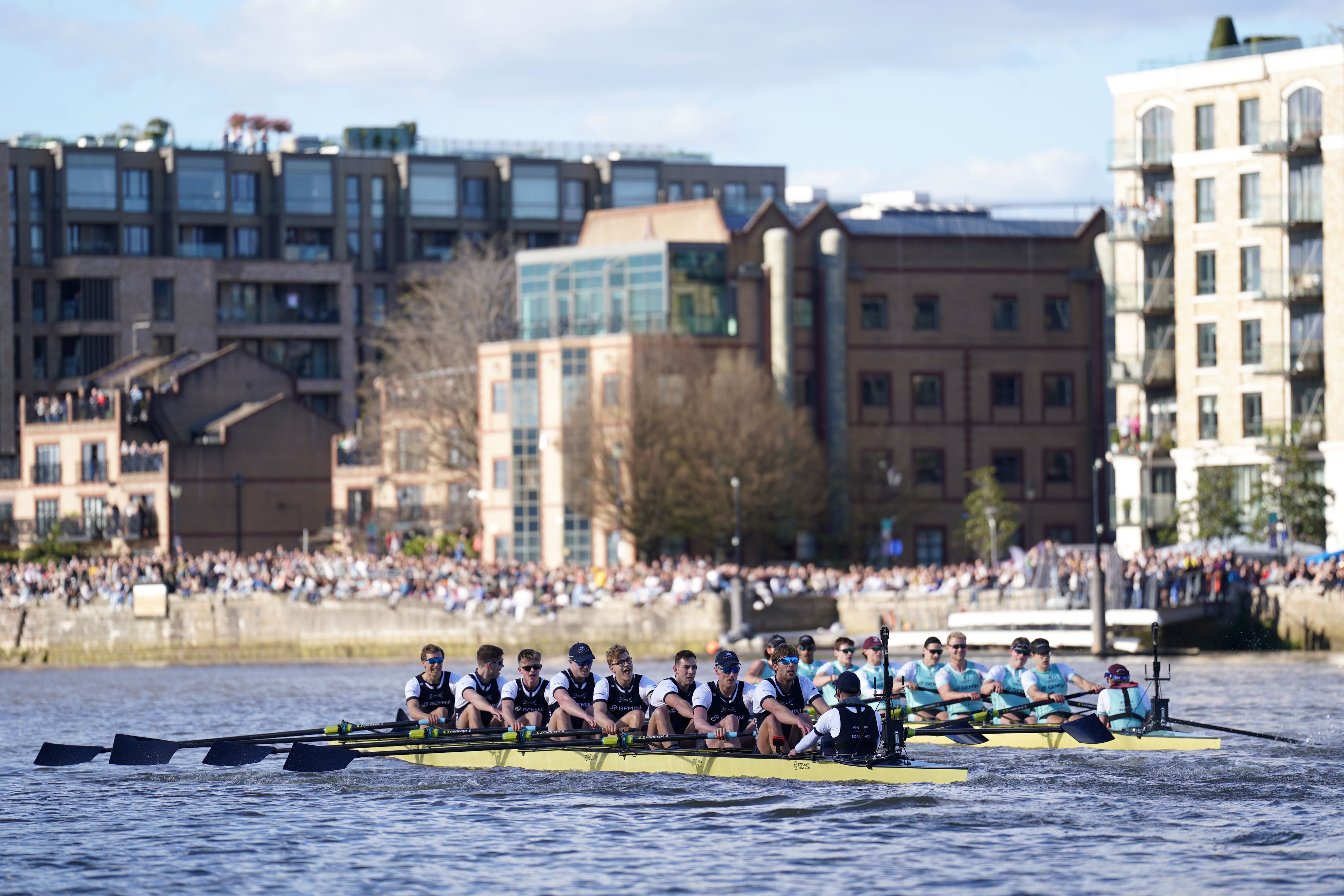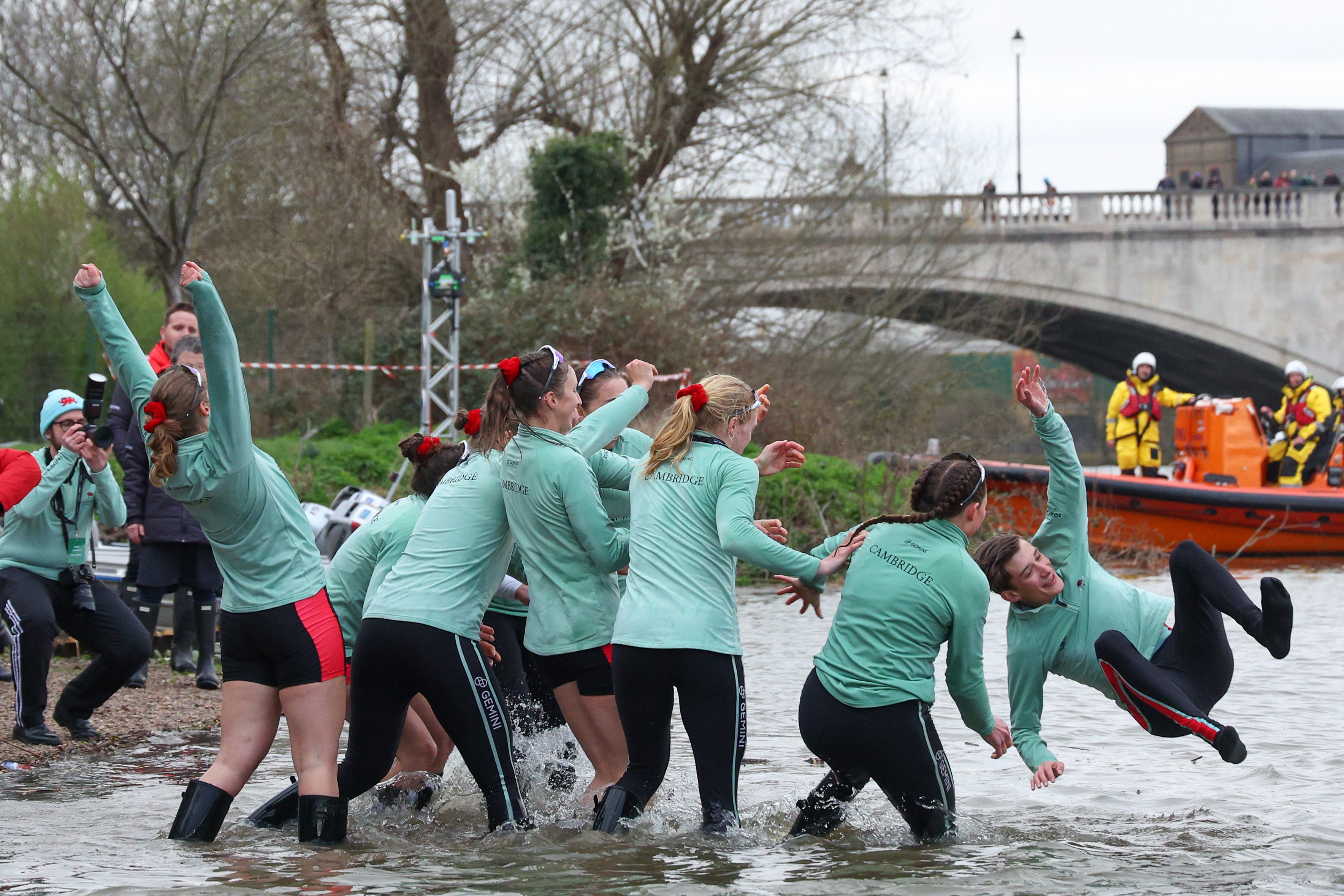
The 2025 Boat Race looks set to take place under a cloud with the row over selection rumbling on but the race’s organisers refusing to be drawn into the affair.
This build up to this year’s races has been overshadowed by a ban on PGCE students, which ruled out three of Cambridge’s Blue Boat crew, Molly Foxell, Kate Crowley, and Matt Heywood. Oxford insisted on the ban under the grounds that the teacher training qualification does not constitute a degree, although students on the course have competed for both sides in previous years without issue.
An independent panel initially imposed the ban, then reversed it when Cambridge appealed, and then re-upheld the ban when Oxford appealed on the grounds that it could not reverse its original decision.
The fallout from the decision continued this week. The Guardian reported earlier on Wednesday that a practice race between the Oxford and Cambridge women’s reserve crews did not go ahead after Oxford insisted that the ban should apply to the reserve boat as well, again ruling out Foxell and Crowley.
The report also suggested that CUBC president Lucy Havard was suggested as a replacement, but that idea was also dismissed due to an infringement of another rule, the 12-year rule, which makes anyone who began an undergraduate degree more than 12 years ago - as Havard did - ineligible. London Rowing Club stepped in for Cambridge and Oxford lost all four of the practice races.
Pressed on the situation and the rancour between the clubs at a media day on Wednesday, Boat Race Company Chair Siobhan Cassidy side-stepped the issue.
“First of all, the clubs agree the rules between themselves, and every year there’s a point where they can review those and look back at what’s gone on and look ahead,” she said. “So that’s just part of what will happen, that will be something that will be happening after the race anyway.
“The races that went on this morning, they decided themselves who they were going to race and that’s up to them. We’ll support the clubs as they’re doing what they need to do.”

Two Cambridge students on the panel, Olympian Claire Collins and George Bourne, also refused to be drawn on the subject. The student athletes on both sides have had nothing to do with the falling out over selection, but Cambridge have seen teammates shuffled around and dropped as a result.
Bourne, a Boat Race debutant, said, “Without wanting to give too much of a stock answer, it’s not for us in the crew to spend our time thinking about these sorts of things. We’ve got nine of us in the boat and a coach to work with as well, and we’re pretty focused on what we’re trying to do on race day and those emotions and thoughts I think are for other people at this stage. We’ve got a job to do and it’s having to make an effort to be dialled in to what we’re doing.”
Asked about whether those who have missed out will be supporting their teammates on Sunday, Bourne said: “I think people will be here supporting, but as I say, for us we’ll catch up with them after the race. We’ll go out and try to do a job on the water, and save those emotions for after the race.”
Collins, who is studying an MBA, suggested that the Blue Boats were aiming to block out the noise around the issue. She said, “Most people in the room are still doing their coursework right now, I still have a product due at the end of the week, so it’s nice to keep that balance and check out a little bit in that way. That’s been fun.”
While the eligibility row is a new issue for this year’s event, the Boat Race also faces being overshadowed by a familiar problem from last year: E coli levels in the the four-mile stretch of the Thames the race covers.

The environmental charity River Action said that it detected levels of E coli three times above the threshold which the Environment Agency classifies as “poor” and advises against bathing in. The stretch the Boat Race covers is not a bathing water area of the river, but high levels of E coli nevertheless impacted the Race last year, with several of Oxford’s rowers sick in the build up to the race. The usual tradition of throwing the victorious cox into the river was also abandoned over fears of illness.
Cassidy struck a more positive note this year, crediting the Thames Tideway Tunnel, which is designed to capture and store raw sewage which would otherwise overflow into the river, for improving the standard of the water.
She said, “The Tideway tunnel project has made a huge difference in taking up any sewage that’s been released. That’s a really positive thing for sure, but we know there’s more work to be done, so we just keep a close eye on it, work with the clubs and give them some advice on how to manage when the water quality is not good.
“We’ll always issue advice on how to look after themselves and the clubs are really good at looking after the welfare of their squads. That has been issued as part of any good practice anyway, and that comes from British Rowing, which is being issued to all the clubs all the time, and that’s standard on this stretch of water, so that’s the same as ever.”
The guidance suggests crews wash their hands and shower immediately after being in the water, and covering any open wounds, “just as you would do on any stretch of water when you want to be careful about water quality,” Cassidy said.
On whether the cox-throwing tradition would return this year or crews would stay on the safe side, she said, “The best answer would be you’ll have to watch on Sunday, get to the end and see what happens! We’ll find lots of ways to celebrate on Sunday.”
Cambridge students may have grounds for legal action over Boat Race bans
When is the Boat Race? Start time, TV channel and how to watch Cambridge vs Oxford
Sir Steve Redgrave urges Thames clean-up as young rowers take to the river
Cambridge students may have grounds for legal action over Boat Race bans
Siblings Tom and Emily Ford make Olympic history with feat not seen since 1908
Helen Glover drops big retirement hint after narrowly missing slice of rowing history







